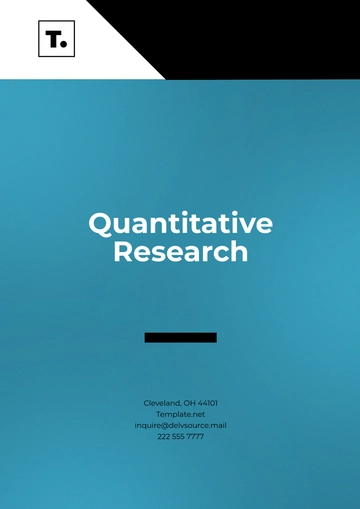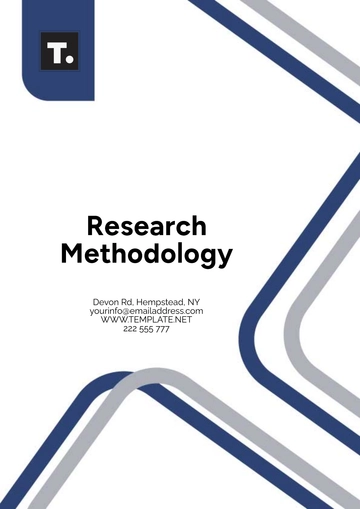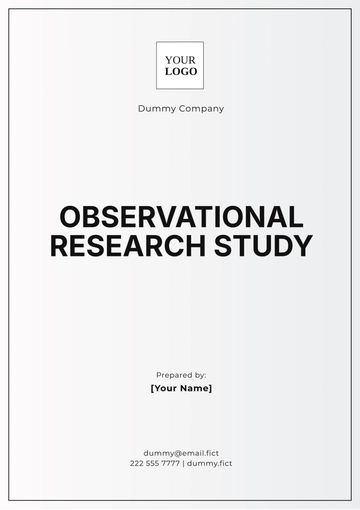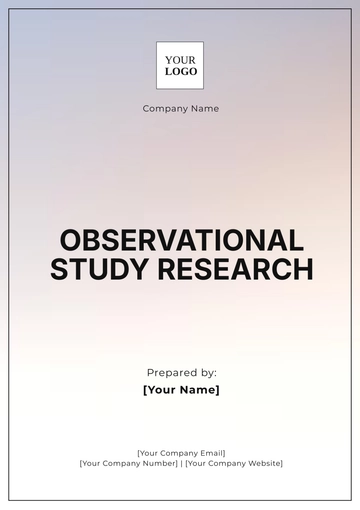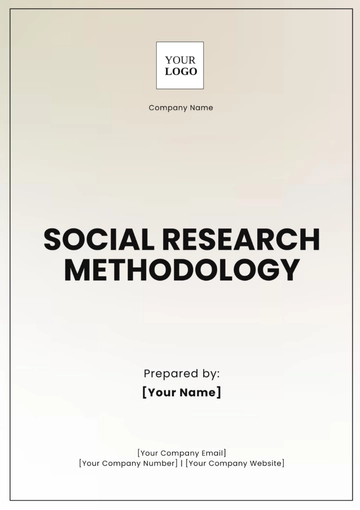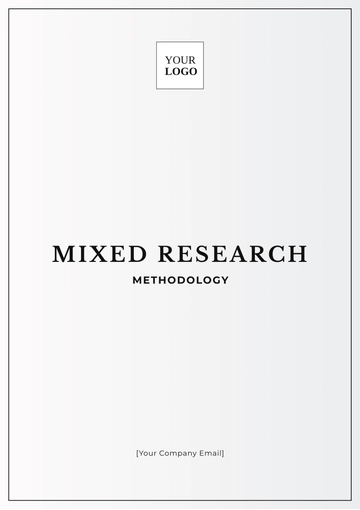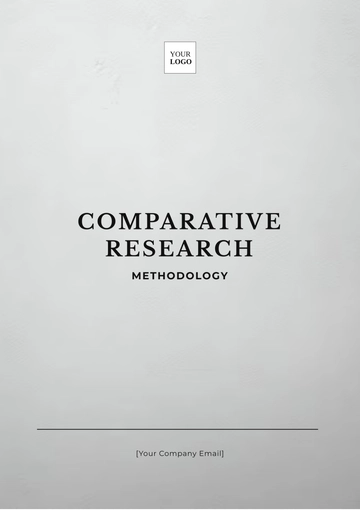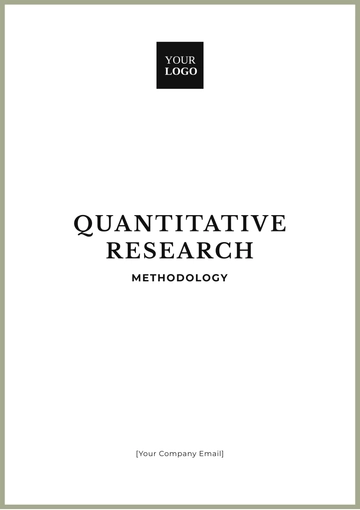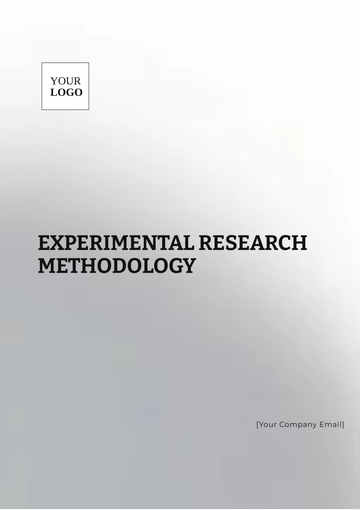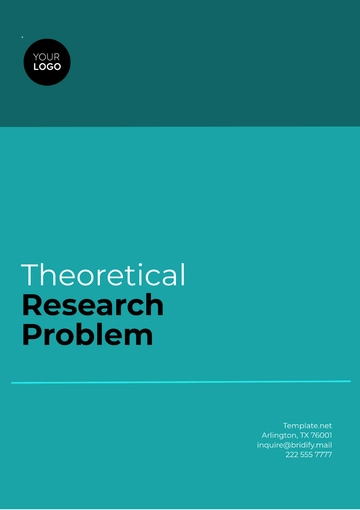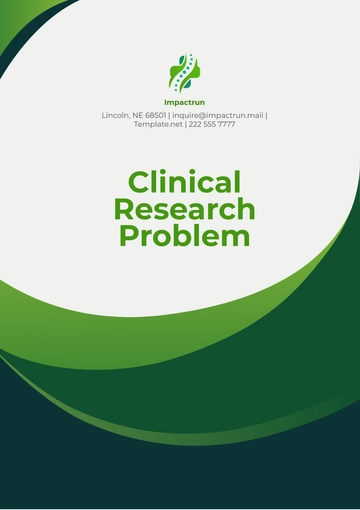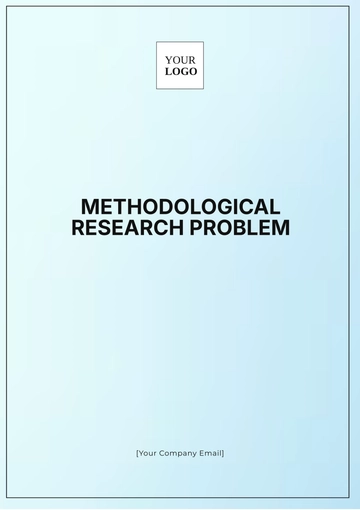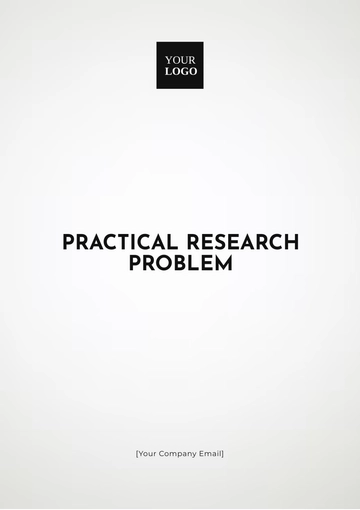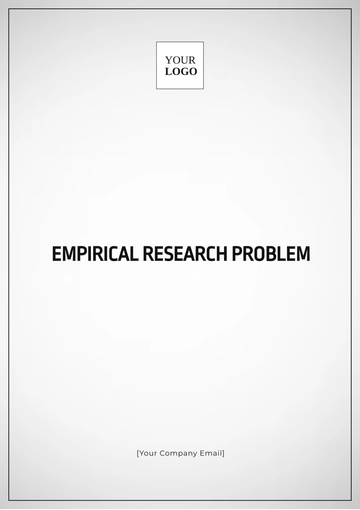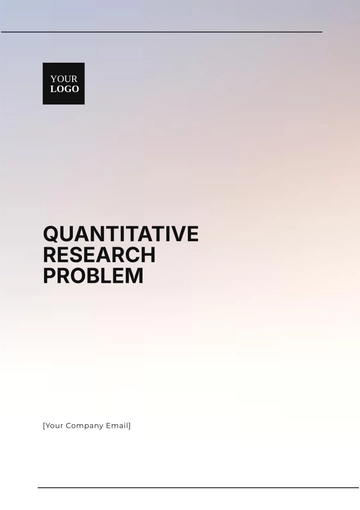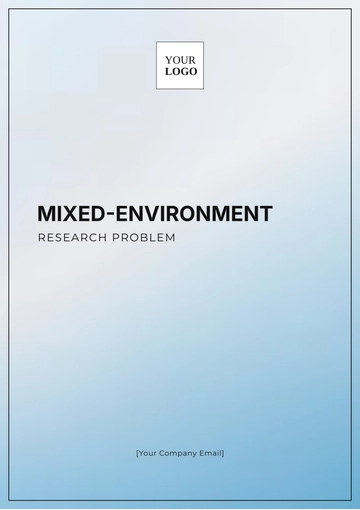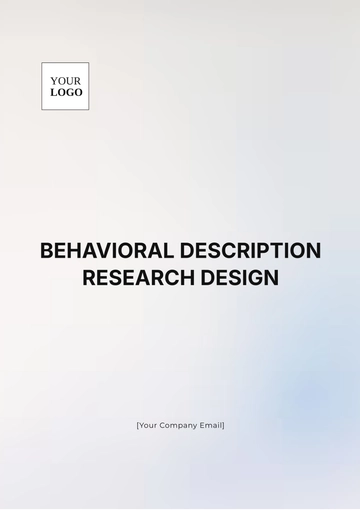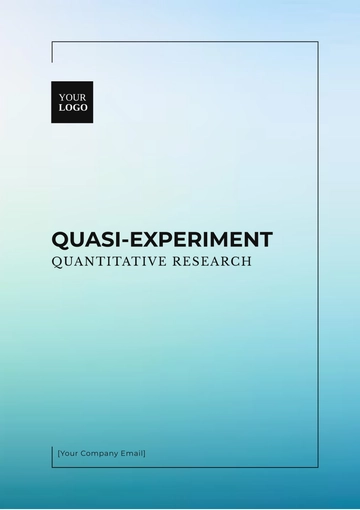Free Ethics Article Quantitative Research
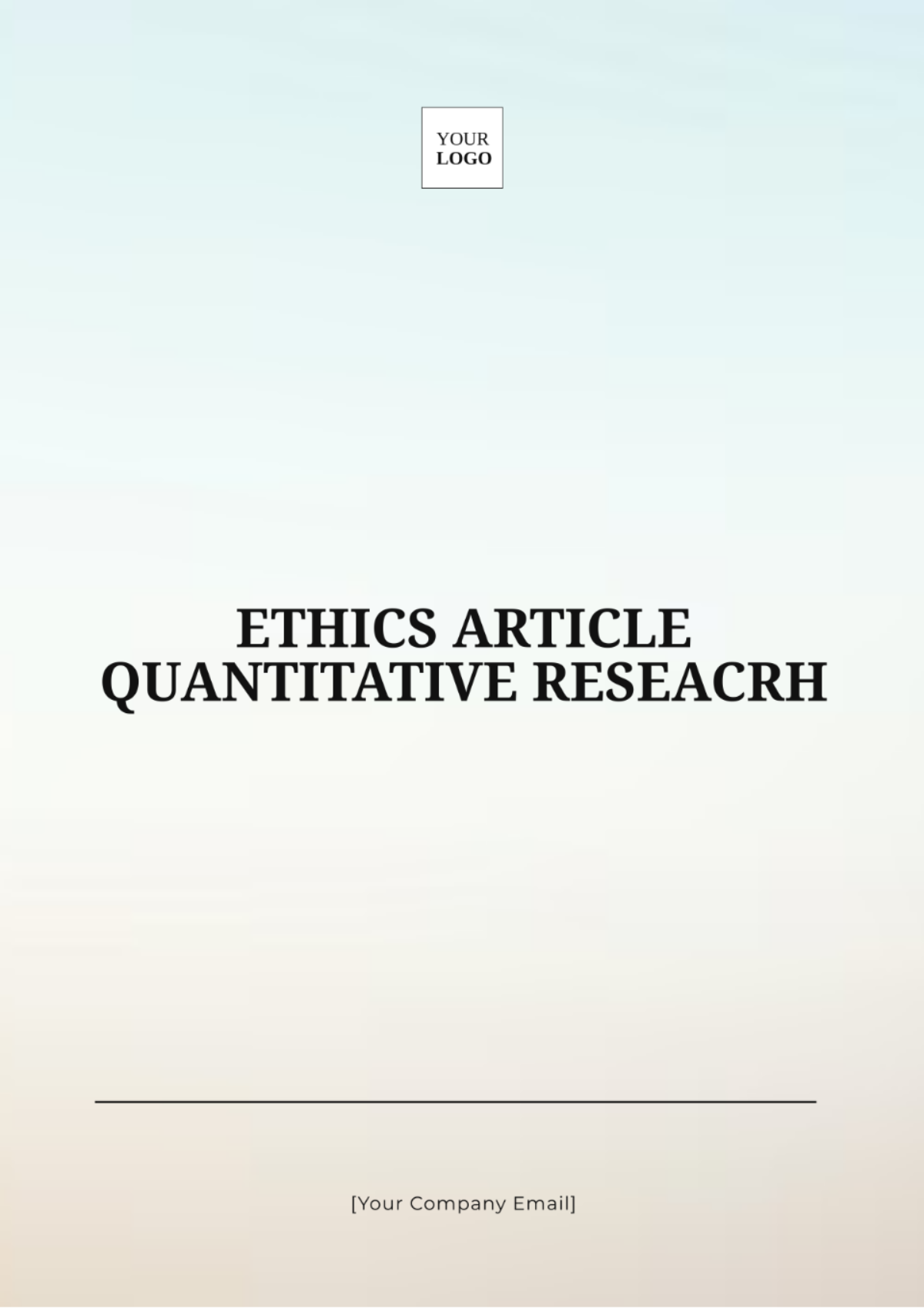
Prepared By: [YOUR NAME]
Date: [DATE]
I. Abstract
This research examines the impact of organizational ethics programs using quantitative methods, gathering survey data from 150 employees in different sectors involved in their company’s ethics program, and evaluates how ethics training, policy application, and enforcement affect ethical behavior and compliance; findings show companies with comprehensive ethics programs see a 30% rise in compliance and a 15% drop in unethical behavior.
II. Introduction
Organizational ethics programs play a critical role in promoting ethical behavior and preventing unethical conduct within companies. These programs are multifaceted, typically incorporating several key components:
Ethics Training: Provides employees with the knowledge and skills needed to navigate ethical dilemmas and adhere to ethical standards.
Clear Policies: Establishes formal guidelines and expectations regarding ethical behavior and decision-making processes.
Enforcement Mechanisms: Ensures that ethical policies are consistently applied and that violations are addressed appropriately.
This research evaluates how ethics programs impact employee behavior and organizational integrity, focusing on training, policy implementation, and enforcement. Understanding these effects helps organizations improve their ethics programs to maintain a culture of integrity.
III. Literature Review
Research indicates that effective organizational ethics programs are instrumental in reducing unethical behavior and fostering a positive organizational culture. Key findings from existing studies include:
Ethics Training: Treviño and Nelson (2050) found that comprehensive ethics training improves employees' moral awareness, decision-making skills, and understanding of ethical standards, and reduces unethical behavior.
Clear Policies: Research indicates that clear and well-communicated ethics policies foster a robust ethical culture in organizations by helping employees comprehend expectations and offering a structure for ethical decision-making.
Enforcement Mechanisms: Jones (2051) stresses that effective enforcement, including disciplinary actions and compliance monitoring, is vital for maintaining and ensuring ethical behavior.
Despite these insights, there is a notable lack of quantitative research specifically assessing the relative impact of different components of ethics programs. For instance, while qualitative studies have explored how training and policies affect ethical behavior, empirical data comparing the effectiveness of various program elements is sparse.
This study addresses this gap by providing quantitative data on the effectiveness of different aspects of ethics programs. By examining the impact of ethics training, policy clarity, and enforcement mechanisms, this research aims to offer a comprehensive evaluation of how these components contribute to ethical behavior and organizational integrity.
IV. Methodology
The research utilizes a cross-sectional survey approach to evaluate the impact of organizational ethics programs, with a methodology designed to collect detailed information on how various elements of these programs affect employee behavior.
A. Research Design
A cross-sectional survey study was chosen to capture a snapshot of employees' experiences and perceptions regarding their organization's ethics program. This design allows for the examination of relationships between program components and ethical behavior at a single point in time.
B. Participants
The study involved 150 employees from diverse industries such as finance, healthcare, and manufacturing. Participants were selected based on their involvement in their organization's ethics program within the past year. This diverse sample ensures a broad perspective on the effectiveness of ethics programs across different sectors.
C. Data Collection
Data was gathered using a structured questionnaire, which was carefully designed to capture detailed information on several key areas:
Ethics Training: Explorations into the various experiences and the overall effectiveness of different ethics training programs.
Policy Awareness: A comprehensive understanding and clear grasp of the ethical policies established by the organization.
Enforcement Effectiveness: Perceptions of the extent to which ethical policies are effectively enforced and meticulously adhered to.
The questionnaire utilized Likert scale questions to quantitatively measure participants’ responses, providing a basis for statistical analysis of the data.
D. Analysis
The collected data was analyzed using regression analysis to identify the relationships between the different components of ethics programs and employee ethical behavior. This analysis helps in determining how effectively each component—training, policy clarity, and enforcement mechanisms—contributes to promoting ethical practices within organizations.
V. Results
The survey data analysis revealed important insights into how different aspects of organizational ethics programs influence employee behavior, highlighting the importance of ethics training, clear policies, and consistent enforcement mechanisms.
A. Summary of Findings
Component | Impact | Percentage Improvement |
|---|---|---|
Training | Increase in adherence to ethical standards | 30% |
Policies | Improvement in overall compliance | 20% |
Enforcement | Reduction in reported unethical behavior | 15% |
B. Detailed Results
Training: Organizations with thorough ethics training saw a 30% increase in employees adhering to ethical guidelines, proving the importance of such training.
Policies: Clear and accessible ethics policies led to a 20% improvement in employee compliance by providing clear guidelines for ethical decisions, fostering an ethically aligned workforce.
Enforcement: Effective enforcement mechanisms reduced reported unethical behavior by 15%. Consistent disciplinary actions and monitoring ensure ethical standards are upheld and violations addressed promptly.
C. Interpretation
The results highlight the effectiveness of a multi-faceted approach to ethics programs. Key findings include:
Training: Effective training programs significantly improve ethical adherence, suggesting that ongoing education is crucial for maintaining high ethical standards.
Policies: Clear policies enhance compliance, indicating that accessible and well-communicated guidelines are vital for guiding employee behavior.
Enforcement: Robust enforcement reduces unethical behavior, reinforcing the importance of consistent application of rules and consequences.
These findings suggest that organizations should invest in developing comprehensive training programs, establishing clear policies, and implementing effective enforcement mechanisms to foster a strong ethical culture and enhance overall compliance.
VI. Discussion
The research supports the conclusion that a well-rounded organizational ethics program characterized by extensive training, explicit policies, and steadfast enforcement successfully promotes ethical behavior, corroborating Jones' (2015) findings and highlighting the necessity of a diverse approach.
A. Key Insights
Holistic Approach: A well-rounded ethics program is crucial. Each component—training, policies, and enforcement—contributes significantly to ethical behavior and reinforces organizational values.
Training: Comprehensive training leads to a 30% increase in adherence to ethical standards, highlighting its role in improving employees' understanding and application of ethical principles.
Policies: Clear policies result in a 20% improvement in compliance, providing employees with essential guidelines for ethical decision-making.
Enforcement: Effective enforcement mechanisms correlate with a 15% reduction in unethical behavior, ensuring that ethical standards are actively upheld.
B. Implications for Organizations
Refinement: Continuously update training, policies, and enforcement mechanisms to enhance program effectiveness.
Investment: Prioritize nurturing education, crafting thorough policies, and implementing robust regulations to build and maintain a resilient and strong ethical environment.
Continuous Improvement: Regularly assess and adjust ethics programs to address evolving challenges and maintain high ethical standards.
Overall, integrating these elements into ethics programs creates a robust framework that supports a more ethical workplace culture.
VII. Conclusion
This research underscores the crucial importance of strong organizational ethics programs in fostering ethical behavior and compliance within companies, showing that effective ethics training, well-defined policies, and consistent enforcement are key elements that greatly improve ethical conduct among staff.
A. Key Takeaways
Importance of Robust Programs: Investing in thorough training, well-defined policies, and effective enforcement mechanisms is essential for nurturing a culture of integrity, which helps organizations with well-structured ethics programs achieve better ethical behavior and compliance.
Focus Areas for Improvement:
Enhance Training: Create and deploy comprehensive ethics training programs to ensure employees are well-prepared for making ethical decisions.
Strengthen Enforcement: Ensure that ethics policies are consistently enforced to maintain high standards of conduct and address violations effectively.
Recommendations for Future Research:
Long-Term Impact: Investigate the long-term effects of ethics programs on organizational behavior and compliance to understand their enduring benefits.
Sector-Specific Analysis: Examine how ethics programs perform across different sectors to tailor strategies that address industry-specific challenges.
In essence, organizations ought to emphasize the creation and ongoing refinement of their ethics initiatives; concentrating on education, clear policies and stringent enforcement can foster a robust ethical environment that promotes compliance and integrity, with additional research being crucial for evaluating the long-term success and efficacy of such programs in different sectors.
VIII. References
Treviño, L. K., & Nelson, K. A. (2050). Managing Business Ethics: Straight Talk About How to Do It Right. Wiley.
Jones, T. M. (2051). Ethical Decision Making by Individuals in Organizations: An Issue-Contingent Model. Academy of Management Review, 20(2), 285-305.
- 100% Customizable, free editor
- Access 1 Million+ Templates, photo’s & graphics
- Download or share as a template
- Click and replace photos, graphics, text, backgrounds
- Resize, crop, AI write & more
- Access advanced editor
Address ethical considerations effectively with Template.net’s Ethics Article Quantitative Research Template. This fully editable and customizable template is designed to help you structure articles that meet ethical research standards. It offers a clear framework for discussing ethical issues within your quantitative research. Editable in our Ai Editor Tool, this template allows you to customize content
